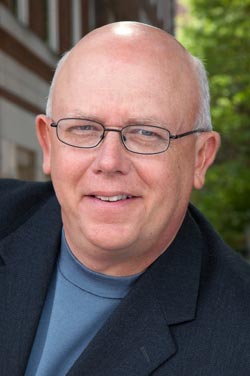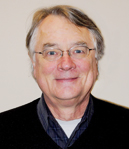Teaching Visits Fall 2012 (Archived)
This is an archive of our teaching visits from 2012
In 2012, we offered two types of Teaching Visits:
- Teaching Visits for faculty, in which instructors open their classes to a small group of their colleagues on a selected day, and
- Teaching Visits for CiCT participants, in which instructors open their classes to a small group of graduate students and post-docs who are completing the CFT’s Certificate in College Teaching.
Teaching Visit Opportunities Fall 2012
Cynthia Paschal, Associate Professor of Biomedical Engineering
BME 258: Foundations of Medical Imaging
Physics and engineering of image formation by different modalities used for medical applications. Concepts common to different imaging modalities and limits of physical phenomena. Mathematical concepts of image formation and analysis; techniques for recording imagings using ionizing radiation (including CT), ultrasound, magnetic resonance, and nuclear (including SPECT and PET). Methods of evaluating image quality.
Date: Thursday, January 31st
Class Time: 9:35-10:50 am
Location: SC 5306
Facilitator: Cynthia Brame
Discussion Location: SC 5306
Faculty of Any Rank REGISTER NOW
David Weintraub, Professor of Astronomy
ASTR 203: Theories of the Universe
The interdependence of cosmological theories and religious teachings from the eighth century BCE to the end of the seventeenth century. Examines scientific works and religious texts, including those of Aristotle, Thomas Aquinas, Copernicus, Luther, Galilieo, and Newton.
 Date: Tuesday, February 12th
Date: Tuesday, February 12th
Class Time: 8:10-9:25 am
Location: SC 5211
Pedagogies: Lecture, Discussion
Facilitator: Cynthia Brame
Discussion Location: SC 6333
Junior Faculty Only (tenure or non-tenure track) REGISTER NOW
John Geer, Gertrude Conway Vanderbilt Professor in Political Science.
PSCI 100: Inbtroduction to American Government and Politics
This course introduces students to the American political system. The primary focus is on the operation of our national government. Not only will we examine how the formal institutions of government work, such as the Congress, the Presidency, and the Supreme Court, but we will also consider the informal institutions, such as public opinion, political parties, and the mass media. The underlying theme of this course concerns whether the United States is a democracy. This is the “big” question in the course. Most Americans just assume we are democratic. Certainly our leaders claim we are the greatest democracy in the world and in fact have gone to great efforts to spread our approach to government to other countries. But are we democratic? The answer, as you will see, is open to debate. This class provides, in effect, a chance to have that debate.
 Date: Thursday, February 14th
Date: Thursday, February 14th
Class Time: 1:10-2:25 pm
Location: Wilson 103
Pedagogies: Lecture
Facilitator: Joe Bandy
Discussion Location: TBD
Junior Faculty Only (tenure or non-tenure track) REGISTER NOW
Mark Wollaeger, Professor of English
ENG: 116W: Introduction to Poetry
The main objectives of this course are to widen student’s knowledge of poetry, to help them become close readers of poetry, and to help develop critical writing skills.
 Date: Monday, February 18th
Date: Monday, February 18th
Class Time: 8:45-10:00 am
Location: Calhoun 219
Pedagogies: Discussion, Mini-lecture
Facilitator: Nancy Chick
Discussion Location: Benson 414
Junior Faculty Only (tenure or non-tenure track) REGISTER NOW
Leonard Folgarait, Professor of History of Art
HART 232 Modern Architecture
This course is an in-depth study of important developments in the history of architecture from the early 19th century to the present. Works of architecture will be considered as objects of intellectual and physical labor that can be studied for information about the historical period of their production. In addition to buildings, we will take architecture to include theory, drawings, unbuilt architecture, city planning, and ways in which architectural ideas are used in non-architectural media. Formal analysis and a social historical approach will address questions such as: Why was this building constructed? Whose purpose did it serve? How was it received in its own time? How does a consideration of its style help to answer the previous questions? Emphasis will be placed on relationships between style and content, and in turn to general historical conditions. The course intends to demonstrate that architectural production, as other forms of human behavior, can yield meaningful information about the historical process.
 Date: Wednesday, February 27th
Date: Wednesday, February 27th
Class Time: 11:10 pm – 12:00 pm
Location: Cohen 308
Pedagogies: Lecture, Discussion
Facilitator: Nancy Chick
Discussion Location: Cohen Lobby
Faculty of Any Rank REGISTER NOW
Steve Buckles, Senior Lecturer of Economics
ECON 100: Macroeconomics
The role of scarcity and prices in allocating resources. National income, fluctuations in unemployment and price level, monetary and fiscal policy
 Date: Wednesday, March 13th
Date: Wednesday, March 13th
Class Time: 2:10 pm – 3:00 pm
Location: Wilson 103
Pedagogies: Lecture, Discussion, Clickers
Facilitator: Joe Bandy
Discussion Location: Wilson 103
Junior Faculty Only (tenure or non-tenure track) and CICT Participants
REGISTER NOW
Sheri Shaneyfelt, Senior Lecturer of Art History
HART 111: History of Western Art II
This course is designed as an introductory survey of Western art history from the Renaissance to the Modern period, considering primarily painting, sculpture, and architecture. Please note that the chronological and thematic range of material covered will vary somewhat depending on the instructor. HART 111 is intended to provide a historical understanding of the major artistic movements within the Western visual tradition, and to encourage students to develop a literate and critical eye. Attention is given to works of specific artists, as well as cultural factors that affect the visual arts from production to reception.
 Date: Tuesday March 26th
Date: Tuesday March 26th
Class Time: 11:00 am – 12:15 pm
Location: Cohen 203
Audience: All
Pedagogies: Lecture, Questioning, Discussion
Facilitator: Nancy Chick
Discussion Location: Cohen 203
Junior Faculty Only (tenure or non-tenure track) and CICT Participants REGISTER NOW
